
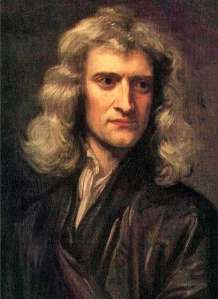

(note that I have done a part Part I and Part II on “Daring to Deny Darwin” at my own blog)
Note: I thank my friend David Bade whom I have quoted below, and who has unearthed most of the fantastic quotations found in the pictures and sidebars garnishing the text below.**
As I noted in just a bit longer exposition the other day (see here), analogies are critical:
The creation we know is not God’s machine or technology, but His living art, the distinct, unequal and beautiful but diseased partner with whom He dances.

― 18th c. English atheist poet Algernon Charles Swinburne
.
I submit that a widespread acceptance of faulty analogies is one of the reasons why, as regards Christianity, unbelief found very fertile ground in the West long before Darwin:
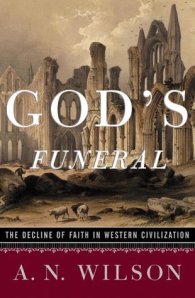
….Darwin’s truly distinctive contribution to the nineteenth-century world-view was not to promote materialism, nor to propose a theory of evolution – plenty of scientists and philosophers had already done that; it was to expound a theory of natural selection which removed any necessity for a metaphor of purpose when discussing natural history. Evolution proceeded, in the Darwinian view, by a series of ineluctable progressions, the stronger form always eliminating the weaker. Once the process had been recognized for what it was, there was no need to personalize it at all. There was no need to pretend that Natural Selection had a view of things, or loved the world, or the people in it, any more than it had once loved amoebas or brontosauruses. The bleak impersonal chain of being rolled on with the inevitability of the other “laws of nature”: there was absolutely no need, if this was an accurate picture of what happened in nature, to posit the existence of a “Creator”. (A.N. Wilson, God’s Funeral, p. 188, bold mine).
I suggest reading that quotation above several times, and digesting it slowly, as there is a logic here we need to understand. I think that this man, an agnostic with religious leanings (more pantheistic), really gets to the heart of the matter. Now, some notes of clarification and critique…
![With Descartes, mechanics become physics, and an old vision (see below quote on Lucretius) is given new “life”: “there are absolutely no rules in Mechanics which do not also pertain to Physics, of which Mechanics it is a part or type… the laws of my mechanics, that is of [my] physics” – Rene Descartes (quoted by Fabbri)*](https://infanttheology.files.wordpress.com/2014/05/frans_hals_-_portret_van_renc3a9_descartes.jpg?w=245)
-According to the neo-Darwinian theory, being “fit” has little to do with mere physical strength. The stronger eliminating the weaker needs to be understood as meaning that those who “fit” best in their environments survive – what is in view here is both being in the right place at the right time and having all the requisite traits necessary to overcome obstacles to passing on one’s genes. So, of course raw physical strength alone is not the only critical element, but powers of the intellect, survival instinct, etc.
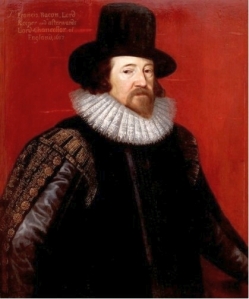
-Nature is conceived of as a machine, operating as it does according to mechanistic laws. Insofar as a personal creator is not in view here this would, given the all-important presence of impersonal “laws of nature”, inevitably seem to be about about viewing the creation as a more or less impersonal machine, even if it can be described as a beautiful, awe-provoking, and even alluring machine.

— David Bade
-The theory seems to feature a glaring contradiction because machines do have a specific purpose. “Does it make sense to talk of function (or even purpose) without a designer?” (Reiss 2009: 20). Interestingly, the presumption of “nature” as a machine presumes an underlying order and arrangement – and scientists insist we are capable of discerning its workings – yet curiously, it is evidently able to avoid having any purpose (which incidently, then brings up another critical question: how do we *know* part of the “purpose” of certain elements in the universe, for example, is to essentially serve as a clock, by which we might determine its age?)

-Interestingly, what Darwin proposes in positing his theory is something that Hume opposes as regards his epistemology. With Hume, not only is “correlation not causation” but we need not posit causation at all! We might recognize that something is there, or that something does happen, but why would we ever imagine that asking why – or even how – something happens is, strictly speaking, necessary? (see here for more on Hume, along with a critique)

-Nevertheless, Hume’s view can be seen as being compatible with Darwin’s theory in a practical sense. In order to not undercut Darwin’s theory with Hume some may note that human beings inevitably will, in spite of Hume’s insistence that it is not logically necessary, search for reasons and causes… For example, for the evolutionist this means how and why is it that some survive and not others… what is the mechanism? Again, note that here, for all practical purposes, we are back to nature as a machine (and so, as Bade notes as regards explanations of “purposeless” evolution, “teleology keeps creeping back into mechanical models through the back door.”****)
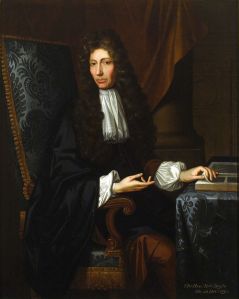
-While the evolutionist might insist that this search is really only practical and necessary for us, this does end up putting the word “truth” in a certain, very strange, context. Here “truth” is talked about in a way that is very different than the ways we typically understand the word. In short, the only truth is that every fiber of our being is unavoidably orientated towards simple survival – specifically, as Richard Dawkins never tires of reminding us, that we might successfully reproduce – at whatever the cost. But note the logical conclusion of this. If our bodies and minds must deceive us in this or that circumstance or context in order that our kind and kin would continue to live[!] – evidently this is the “purpose”, or “goal” of the process[!] – so be it, for this is our destiny (I develop this more, distinguishing my position from Alvin Plantiga’s similar argument in my post Daring to deny Darwin II: how Christians can apply Marx’s largely correct views of human nature to today’s Darwinian climate)
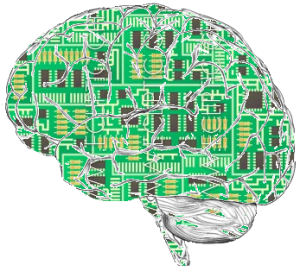
-This is what is ultimately the “truth” then: determinism must, in some mysterious sense – for yes, we feel like and know (do we not?) we are free to choose much! – rule all (yes, note the contradictory nature of this). What does this mean? Well, for instance, the importance of considering guilt and its causes is perhaps to be downplayed, denied, and to be made a merely pragmatic consideration. Those influenced by naturalism live as they please and are “reasonably” able to do so with their fellows (that is avoiding nasty short term and long term consequences as best they can discern them), always living with the contradiction that their lives are both seemingly determined and free.

-In the midst of all of this, what man generally calls religious considerations, which he is unable to avoid, comes to the fore. An attainable “purpose”, as the doggedly materialistic Darwinist sees it (being somewhat compatible with the only “purpose” we seem to be able to somewhat coherently discern and discuss given the overarching frame of our machine-like existence), is to face up to and, if possible, to avoid death. However, as the Christian knows, the real purpose of any fallen man, with no irony intended (hence no quotes around purpose) – his goal – is to downplay and suppress the horridness of death… and ultimately to deny and avoid facing up to the sin against God which causes death – something that we know, deep down, is not the way it is supposed to be (note that no matter how much we suppress the truth – which today happens quite a lot – we do retain a conscience, however badly seared it might be – see more here)

-In order for fallen man to be most effective in taking on death he needs to convince himself that somehow, someway, many limits – perhaps most limits – can potentially be overcome (and yes, there are many other ways fallen man tries to deal with death in less extreme ways – not thinking about it, prettying it up, calling it natural, focusing on the afterlife, etc.). “Limits”… note the quotes – this is the hope that sustains (hence the stuff I have been posting on my own blog from the paper I wrote for my library technology presentation – see here).
![Oh, the irony. Hawking concludes: "we shall all... be able to take part in the discussion of the question of why it is that we and the universe exist. If we find the answer to that, it would be the ultimate triumph of human reason -- for then we should know the mind of God." Librarian and linguist David Bade: "Having theoretically constituted the world as a machine, [scientists] deny their involvement in this construction and identify it with the human striving to know “the mind of God.”— librarian and linguist David Bade."](https://infanttheology.files.wordpress.com/2014/07/stephen-hawking.jpg?w=645)
Some of those quotes I think are most significant I repeat now:
Many years ago, I was reading Isaac Asimov’s fictional Foundation series and was introduced to the character of Hari Seldon. This man develops a science called “psychohistory” that enables him to predict the future via probability using mathematical formulas. As an impressionable sixteen year old, this was a very new idea for me at the time and had a real impact on me – I vividly remember the time and place I read this and my subsequent wrestling with the concept: was science really progressing such that it would have abilities like these? Or if it was not, could it? Recently, I came upon what is by now a familiar theme – the universe as a machine, albeit a beautiful one – in the book The Invention of Hugo Cabret. As opposed to Hari Seldon’s formula(s), which took into account contingencies (and hence probabilities), what we find in Hugo Cabret certainly seems to be a more deterministic way of looking at things. Whether or not this is the case, here I submit that the practical idea is the same: by treating the cosmos as a machine and by carefully observing it, mathematical formulas can assist in “capturing” the world and be used to make predictions about it.
…Men like Descartes and Leibniz even used the automaton as an “emblem of the cosmos”, and this both summed up and fueled what I would characterize as the modern scientific and technological mindset, or MSTM – where the boundaries limiting man’s power over nature increasingly were expected to succumb

What is this modern scientific and technological mindset (ie. straightjacket), or MSTM, in more detail?
I would characterize the MSTM as being set on overcoming everything seen to be a limit, and being reductionistic and pragmatic in practice. I do not mean to imply that the MSTM was the dominant or most important mode of thinking for most of the early modern scientists (most early scientists were more tempered by competing systems of understanding – particularly religious ones – that would compete against drives such as these) or that it was fully developed in those for whom it was the dominant or most important mode of thinking. More specifically, we can look at the MSTM in this way. It begin with an approach to the world called “methodological (not necessarily philosophical) naturalism” in the 17th century, was upgraded to include “pragmatic utilitarianism” in the 19th century, and has in recent years been upgraded to “systematic iconoclastic world-repurposing” towards man’s desires (late 20th and early 21st century). In some cases of course there were those who were “early adopters” of the upgrades. Again, what this all comes down to (endgame) is that we have behavior that can be described as being reductionistic and iconoclastic (limit and barrier breaking). This may leave us with some “laws of nature”, but also leaves us with moral lawlessness, where the ethical façade of the 19th c. “pragmatic utilitarianism” upgrade collapses altogether. At this point, we can say that there is nothing intrinsic about beauty, justice, and meaning, for example – i.e. beauty, justice, and meaning are only something that I/we (and those we choose to associate with) create / make / determine.
(from footnote here)
Even though his argument evidently was not taken seriously by most all intellectuals since he wrote it some 250 years ago, Hamann (see above) nailed it (even if there were other things he said that were not so good – see here). The German romantic writer Goethe also was on to something, when he essentially said that because of what I have called the MSTM….
“the Renaissance ideal of classical languages, classical literature, and classical arts would be replaced by classical mechanics, which have no place for meaning, ethics, or Bildung [that is, the “tradition of self-cultivation, wherein philosophy and education are linked in a manner that refers to a process of both personal and cultural maturation”– Wikipedia] In science and technology, every tool would be used to maximize the power of human being.”******

So here we see that Darwin was just the nail in the coffin, and we now have this cage we deal with. What is “right” and “wrong” is now increasingly ruminated on in the context of the cosmic machine – to be overcome by the few, the proud, the chosen. Much is unknown here, but we can say this: they will rule not like the God of the Scriptures would have leaders rule, that is to not only act with true retributive justice, but to major on showing – from the depths of their hearts – kindness, compassion, and mercy for all human beings.

C.S. Lewis draws things to a close for us – from his Abolition of Man:
What we call Man’s power over Nature turns out to be a power exercised by some men over other men with Nature as its instrument… For the power of Man to make himself what he pleases means… [is] the power of some men to make other men what they please….[from elsewhere in the book: …mere nature to be kneaded and cut into new shapes for the pleasures of the masters who must, by hypothesis, have no motives but their own ‘natural’ impulses.] If man chooses himself as raw material to be manipulated, raw material he will be: not raw material to be manipulated as he fondly imagined, by himself, but by mere appetite, that is, mere Nature, in the person of his dehumanized Conditioners…..

This is what legitimates the construction of a mechanical model of the living body, including the human body–for already in Descartes the human body, if not man, is a machine.” — Georges Canguilhem (1947)
In short, ruthless mechanical “justice” for the life unworthy of life. For those unworthy of our boastful strength and might and accomplishment.
But heed O man – there is only one way to really survive death…
“Let not the wise boast of their wisdom
or the strong boast of their strength
or the rich boast of their riches,
but let the one who boasts boast about this:
that they have the understanding to know me,
that I am the Lord, who exercises kindness,
justice and righteousness on earth,
for in these I delight.
— Jer. 9:23-24
….this is eternal life, that they know you the only true God, and Jesus Christ whom you have sent.
— John 17:3
FIN
*This quotation from the mid-eighteenth century, re-iterates one made by the Italian humanist – arguably the father of “historicism”, Giambattista Vico* (really vs Descartes), already offered in the late seventeenth century. In Vico’s mind, methodological error was to be charged towards persons like Descartes, who “apply human ideas, such as ‘laws’ and ‘principles,’ to the study of nature, which was created by God and so is fully known by God alone” (Noland, p. 111)! Vico however made an error of his own, falling off the other side of the horse: While Descartes rejected the “application of human ideas, such as ‘laws’ and ‘principles’, to the study of history, Vico argued that human history is, in fact, created precisely through such ideas, which are ‘modifications of the human mind’” (p. 111) – he “asserted the epistemological primacy of the man-made historical world” (Gadamer, in Noland p. 220). Martin Noland, Harnack’s historicism: the genesis, development, and institutionalization of historicism and its expression in the thought of Adolf Von Harnack (1996). More on Vico and historicism in an upcoming post.
But if we go with Hamann, does this mean we give up rationality and science? Hardly. As I wrote elsewhere:
“I think all of this can be better understood with a simple analogy: Parents arrange things in a consistent fashion so that a child can be captivated, play, create and experiment on the one hand, and they arrange things and *act* in a consistent fashion so that the child feels security, stability, and confidence, on the other hand. Arranging things in a consistent fashion – more or less so – depending on what we are talking about, and acting in a consistent steadfast fashion is a part of love. Creating beauty and order for another is a fruit of love. In other words, order is born of love, not love of order – or from a love of order! As the linguist Roy Harris perceptively notes, communicative behavior cannot arise from non-communicative behavior. There must be an infrastructure in place from the beginning. This matter does not center around the fact that truth is a social construct instead of some cold and impersonal factual correspondence, or something like that – but that how we conceive of and describe reality can’t not be done personally, or socially. And such should not surprise, because Reality is personal, is social (rooted as it is in the Reality of the Triune God). And this in turn brings us back to Romans 1. It is not that there is nothing to the idea that order=God, but rather that order can’t not be recognized as a fruit of love. Perhaps one’s proof of God does not begin by saying “Someone must have made this”, but rather by the love that one does know.
Now none of this means that we can’t observe [and harness, as are able] the hard and soft regularities that God has put in place for us. It just means being humble about working with these things, understanding that He has His own purposes for arranging the world as He sees fit, and we have our own purposes…” (from here)
**From a paper recently presented at a conference “Integrationism and humanism” in Oberageri Switzerland 24-27, June 2014.
Key sources quoted in Bade’s paper and above:
Canguilhem, Georges (2008). Knowledge of Life. Translated by Stefanos Geroulanos, and Daniela Ginsburg, Introduction by Paola Marrati, and Todd Meyers New York: Fordham University Press.
Eaton, William R. (2005). Boyle on Fire: The Mechanical Revolution in Scientific Explanation. London: Continuum. (Continuum Studiesin British Philosophy)
Fabbri, Natacha (2011). “Deus Mechanicus and Machinae Mundi in the Early Modern Period,” Historia Philosophica. An International Journal, IX: 75-112.
Machamer, P., Mcguire, J. E. and Kochiras, H. (2012). “Newton And The Mechanical Philosophy: Gravitation As The Balance Of The Heavens” The Southern Journal of Philosophy, v.50 nr.3: 370–388
Mittelstrass, Jürgen (1988). “Nature and science in the Renaissance.” In Woolhouse, R. S. (ed.), Metaphysics and Philosophy of Science in the Seventeenth and Eighteenth Centuries : Essays in Honour of Gerd Buchdahl. (Dordrecht and Boston: Kluwer Academic), 17-43.
Mittelstrass, Jürgen (1995). Machina mundi: Zum astronomischen Weltbild der Renaissance. Basel: Helbing & Lichtenhahn. (Vorträge der Aeneas-Silvius-Stiftung an der Universität Basel ; 31)
Reiss, John O. (2009). Not by Design: Retiring Darwin’s Watchmaker. Berkeley: University of California Press.
***“When Descartes turns to machines to find analogies in his explanation of the organism, he invokes automatons with springs and hydraulic automatons. He is thus a tributary, intellectually speaking, of the technical forms of his age: of the existence of clocks and watches, water mills, artificial fountains, pipe organs, etc…..This explanation can only be conceived once human ingenuity has constructed apparatuses that imitate organic movements…. (for example, the launching of a projectile, the back-and-forth movement of a saw–apparatuses whose action [their construction and activation aside] takes place independently of man)” — Canguilhem, Georges, 2008.
Here the librarian and linguist David Bade has a rather sensible suggestion that those determined to take this path ought to consider: “The usefulness and the validity of thinking of the world as a machine depends upon thinking about machines clearly, and this requires understanding them humanistically and teleologically as creations of human beings for human purposes.”
****example: men like Steven Jay Gould, more so than most evolutionists (but they all do this) “in effect treats the end result achieved as the goal of the process. This is the standard view that since the eye is adapted for seeing, its structure can be explained as the result of a process of selection for seeing” (Reiss 2009: xv).
*****David Bade goes on: “…because it remains a creating nature (natura naturans) or, in Christian and neo-Platonic thought, a machine created and sustained by God.” It seems to me that if the idea of a machine universe is heavily de-emphasized, it is Christians and other persons of the book who still have a sensible foundation for rational and scientific discourse. For others without such a biblical foundation, this kind of confidence may be far more ethereal, and tend to be swallowed up in notions of mystery and the unknowability of it all…
******Noland, Martin R. 1996. Harnack’s Historicism: the Genesis, Development, and Institutionalization of Historicism and its Expression in the Thought of Adolf Von Harnack. Thesis (Ph. D.)–Union Theological Seminary, 1996, p. 176.
Although seeing the big picture more clearly than many of his contemporaries, Goethe was nevertheless, in a sense, also wrong. For, as this post has pointed out, “classical mechanics” had taken a decisive turn. With Galileo and Descartes, there was no room to understanding this as something distinct from nature, having to do with creators and their simple machines: “After Galileo, mechanics became the quantitative study of local motion of bodies, and mechanics and its relation to the simple machines was no longer conceived in opposition with nature” (Machamer, P., Mcguire, J. E. And Kochiras, H. (2012), p.373-374). This theory of motion “became the new model of intelligibility for understanding nature” (ibid.: 374). As David Bade notes: “Whereas Aristotle had distinguished between natural laws of motion and παρὰ φύσινmotions, e.g. mechanical motions which are caused by human action, Galileo argued against that view that mechanical motions also followed the laws of nature, mechanics being the science of the laws of all motion. What he ignored was the fact that levers, winches, pulleys, screws and wedges by themselves do not move; even “the force of the blow” is reduced to “the weight or balance.” The reasons and causes of the miraculous effects of machines has nothing to do with those who make and use them. Galileo’s theory of machines was in many ways and for certain purposes an improvement over earlier theories, but nevertheless his theory of machines was thrown off balance when the existence and operation of the machine was theorized in abstraction from its maker and operator.”
_____
Most images of people from Wikipedia (except Canguilhem: http://www.babelio.com/auteur/Georges-Canguilhem/2584)
cosmos as clock: http://sophistsociety.tumblr.com/post/4674299921/clockwork-universe ; Kurzweil gravestone: http://www.catalysthouse.net/film-review-ray-kurzweil-a-transcendent-man/ ; Hawking: http://www.feandft.com/a-review-of-stephen-w-hawkings-a-brief-history-of-time/












